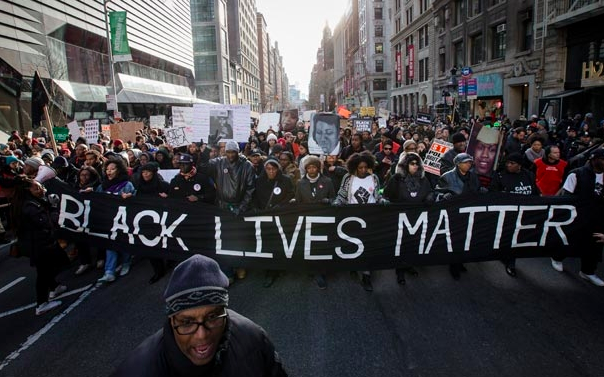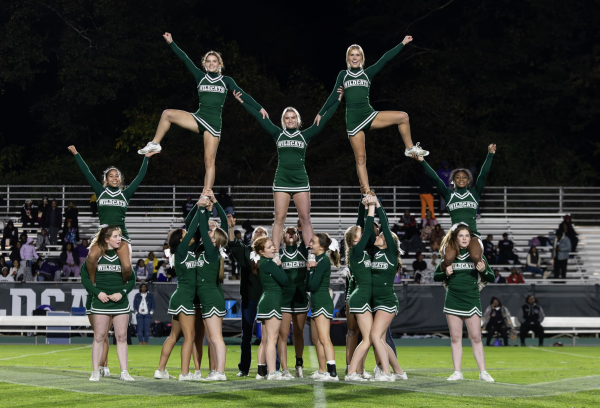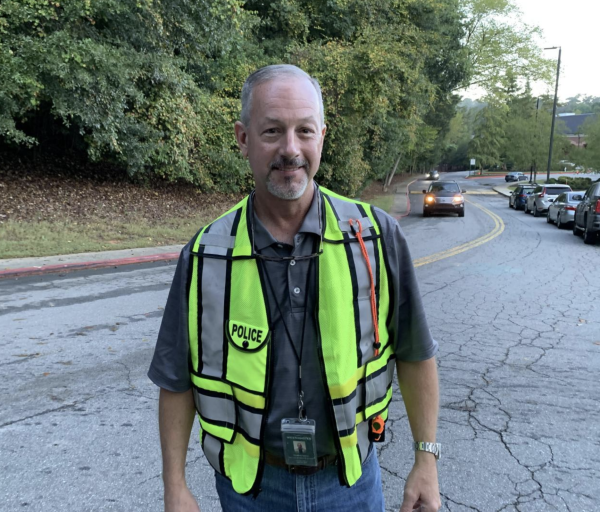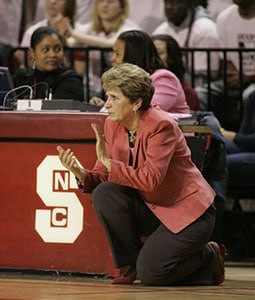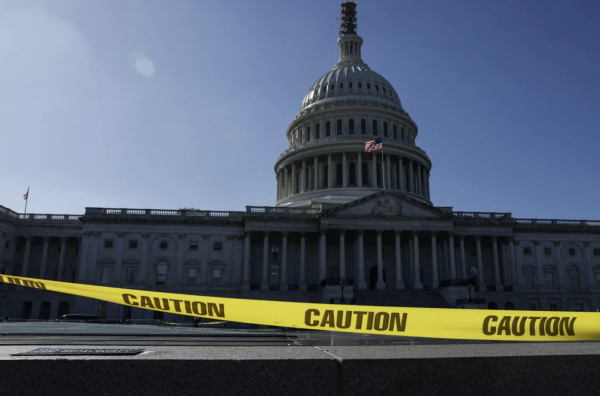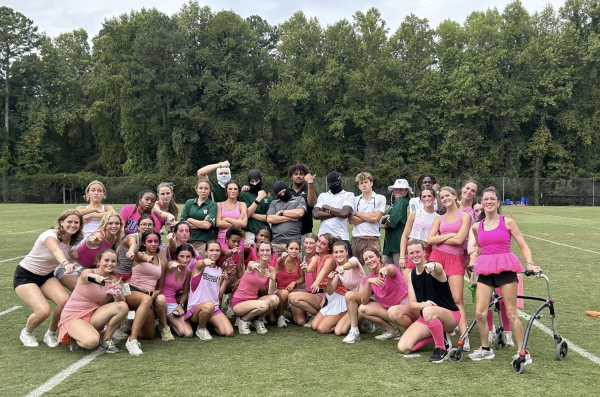Black History Month celebrated amid continued racial inequality
A celebration lasting one month every year exhibits changing attitudes towards race relations in the United States. Through Jim Crow laws, the Harlem Renaissance, the civil rights movement, police brutality, and today’s fight against racial microaggressions, Black History Month has flourished as a celebration of 13.2 percent of our nation’s population (quickfacts.census.gov), trying to undo the oppression the African American race has suffered since the beginning of our nation.
“The country was founded on a brutal history of white supremacy, violence in segregation, and skin color privilege that was embedded in the laws,” said student diversity coordinator Judy Osborne.
Efforts to hold organized celebrations of black history have existed since the summer of 1915, when the state of Illinois held a display of African American achievements since the emancipation of slaves. As an attendee of this three-week event, Carter Woodson was inspired. He founded the Association for the Study of Negro Life and History (ASNLH) and created Negro Achievement Week, which became Negro History Week in 1926.
The second week of February was chosen because it contained the birthdays of two men essential to African American history: Abraham Lincoln on Feb. 12 and Frederick Douglass on Feb. 14. Abraham Lincoln, the U.S. president during the Civil War, is known to African Americans for his position against the spread of slavery and his Emancipation Proclamation in 1863, a declaration of the freedom of slaves. Frederick Douglass escaped from slavery to become one of America’s most prominent abolitionists. According to history.com, he believed that the Civil War was a “moral crusade against slavery and viewed the Union victory as an apocalyptic rebirth of America as a nation rooted in a rewritten Constitution and the ideal of racial equality.”
Through the mid-20th century, knowledge and appreciation for African American history spread like wildfire. Students were taught the subject at school, African American art and literature were published, and the image of an African American person shifted dramatically.
Although his actions helped spark a dramatic shift in the perspectives of everyday Americans, Woodson disliked the limited amount of time devoted to black history. Since 1976, every U.S. president has declared Black History Month official and endorsed the ASALH annual theme.
This year’s theme, “Hallowed Grounds: Sites of African American Memories,” emphasizes the inseparability of black and white history across the entire land of the free.
Sites like Civil War battlefields, Frederick Douglass’s home, and Underground Railroad Network to Freedom bring to light the struggles African Americans have faced and continue to face to achieve equal rights.
The increased spotlight on African American history has also inevitably affected America’s politics. Race has long been intertwined in elections, court cases, and other major political decisions. For example, the majority of African Americans vote Democrat, and segregation of school systems was declared unconstitutional at the conclusion of the famous court case Brown v. Board of Education in 1954.
More recently, Trayvon Martin’s 2012 court case involved white-on-black police brutality, defined as a demonstration of using more force than necessary by law, which many view as a rising issue.
The shifting nature of police brutality has been reflected onto politics off of the complex mirror of race relations. In February 2012, Trayvon Martin, an unarmed 17-year-old in suspension from high school due to drug residue found in his bookbag, was shot by white neighborhood watchman George Zimmerman. After 16 hours of deliberation, Zimmerman was acquitted on claims of self-defense, causing extreme controversy to arise across the nation. This court case called the nation’s attention to the issue of people racially profiling African-Americans as “more dangerous.”
Mark O’Mara, one of Zimmerman’s lawyers, posited the argument that if Zimmerman were black, he would not have been charged.
“This became a focus for a civil rights event, which is wonderful event to have, but they decided George Zimmerman was to blame and to use as a civil rights violation,” said Mara in a 2013 New York Times interview.
On the other side of the argument, the not guilty verdict sparked the anger of many African American-related organizations across the country. One such organization was the NAACP, the president of which was upset over the verdict as supporters of Martin and the image of the marginalized African American race that he came to represent banded together to fix the issue of racial profiling.
As a result, #BlackLivesMatter was born. The movement aims to broaden the conversations of racial biases from the Trayvon Martin case to include all issues that prevent black citizens from having true dignity and equality in America.
The movement’s mission statement on blacklivesmatter.com states:“Rooted in the experiences of black people in this country who actively resist our dehumanization, #BlackLivesMatter is a call to action and a response to the virulent anti-Black racism that permeates our society. Black Lives Matter is a unique contribution that goes beyond extrajudicial killings of black people by police and vigilantes.”
As incidents of police brutality have gained attention with additional instances such as the shootings in 2014 of Michael Brown in Ferguson and Eric Garner in New York, the movement has taken off around the country, probing deeper thought from many about racism in the police force.
“Supporting Black Lives Matter is a general good thing for ethics and moral reasons…it’s a good thing to do as a human being, to advocate for [rights for] people who don’t have them,” said junior Yoonseo Jo, who is involved in the #BlackLivesMatter movement.
Like all political movements, #BlackLivesMatter can be controversial. Many are in disagreement over whether or not police brutality should be viewed as as serious threat.
“#BlackLivesMatter is a very important movement,” said junior Matthew Faler. “With that said, I do not approve of the sometimes-violent protests that some of their members engage in and the general antagonization of the United States police department. Policemen have always been people that I look up to and they are very important people in our society. If we keep antagonizing them this way and pretending that we don’t need them, then who is keeping our streets safe? I will agree that there are some policemen out there with racism and prejudice in their hearts, but we cannot make a generalization based on the acts of a few. I know a few policemen on a personal level and there is absolutely no correlation between the police and racist actions.”
#BlackLivesMatter also has the potential of raising questions about potentially downplaying the importance of other lives.
“I think the controversy isn’t about people not believing that there is a necessity to highlight the need to remove police brutality from our system,” said Osborne. “No one wants to be brutalized, and we all want to live in a fair justice system. It’s more of an opportunity in acknowledging that all lives matter, and reminding people, ‘yeah, black lives matter too.’ Controversy comes when people believe that protesting #BlackLivesMatter diminishes someone else’s [lives]. And it doesn’t. It just means that people need to sometimes be made to see that there seems to be a disproportionate number of unarmed black people being killed at the hands of police.”
In addition to violence caused by racial profiling, the issue of possibly racially biased Oscars has arisen. 2016 is the second consecutive year in which all acting nominees for the Oscars, the most prestigious movie awards ceremony in the country, were white. Director Spike Lee and actors Jada Pinkett Smith and Will Smith have announced that they will not be attending the ceremonies being held on Feb. 28.
“The nominations reflect the Academy, the Academy reflects the industry, and the industry reflects America,” said Will Smith in a Fox News interview. “It reflects a series of challenges that we are having in our country at the moment. There’s a regressive slide toward separatism, toward racial and religious disharmony, and that’s not the Hollywood that I want to leave behind.”
The boycott has Hollywood divided, necessitating national attention.
“There is no racism except for those who create an issue,” said Gerald Molen, a voting member of the Academy, also in a Fox News interview.
The questions about the racial justness of such a prestigious and respected group of awards call even more attention to the issue.
“I would like to believe the Oscars’ committee did not make their choices with racist intentions,” said Faler. “With that said, I believe that it is a very extraneous coincidence that all of the nominees are white. The issue should be looked into because it would be very disturbing if [the selection of all-white nominees] was done on purpose.”
Because of this debate, many school community members are aware of and inspired to action by the racial marginalizing that may be taking place in the Oscars.
“There’s something powerful about looking into the most prestigious awards ceremony in the United States.” said senior Eliza Namnoum. “To look into that audience and see that there are empty chairs [is] representative of the fact that there’s emptiness involved in these movie roles.”
From this movement, another hashtag became viral on social media: #OscarsSoWhite. The boycott of the ceremony by actors and directors has sparked a deafening outcry urging the Academy to consider diversity.
“I think it’s a great thing that protest movements of this sort are catching some wind and people are recognizing that you can start your own hashtag movement and get a lot of people involved, [getting] important issues out there,” said Osborne. “You have more actors speaking out about it, but you also have [the] Oscars organization implementing some new structures and strategies to help offset some of the things that have been going on. I think it’s effective.”
Today, in addition to helping people learn about African-American history, Black History Month reminds America of the still-prevalent issue of racism.
“I do not see Black History Month as an exclusively African American celebration but a remembrance of how racism of any kind does not belong in our society,” said Faler. “I believe that is important for all to remember.”
Westminster students continue to celebrate Black History Month with assembly speakers, lunch dishes such as Diri Djon Djon, and banners, as a contribution to try to offset the racial imbalance that has its roots in the very creation of our nation.
“[Commemorating black history is] about making the invisible visible and helping raise awareness of the contributions of a people that weren’t acknowledged before,” said Osborne.
